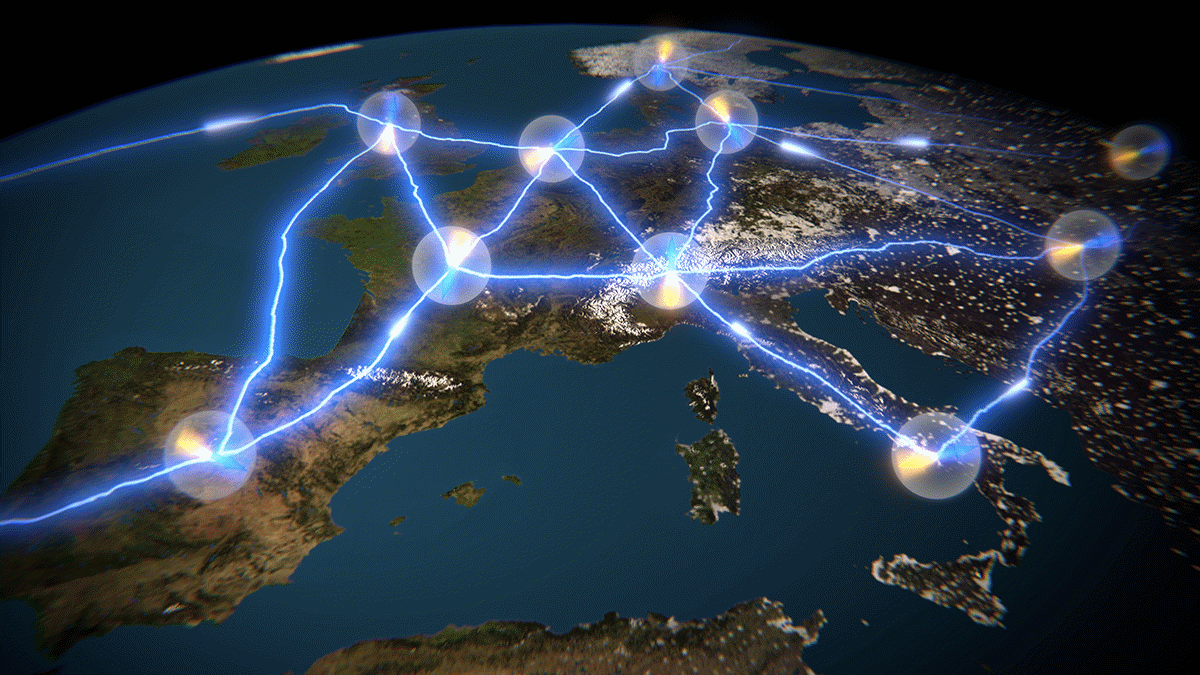



HomeRRRRResearchRRRRTeachingRRRR
Seminar-Quantum Netwroks (QN)
M

It was discovered that quantum physics has the potential to revolutionize information security and sensor technology and, importantly, to enable quantum computers. Therefore, quantum networks will have an important role in communication and accomplishing tasks similar to today's internet. In our seminar, we aim to have a productive discussion time on Quantum Networks.
The general picture is as follows:
-We have two sets of papers, Set I and Set II. Our time will also be divided into Part I and Part II.
Part I:
*) I will spend two sessions explaining the basics.
*) We both will read the papers of Set I. However, I will present the papers with details in our third and fourth sessions.
*) I will give a talk about the Set I papers, similar to the talk you should present at the end of the semester.
Part II:
*) After session 3, you should know what paper of set II you want to pick for your presentation.
*) Starting from session 6, you will entirely focus on reading your paper.
*) You start to prepare your essay, which should be 7 to 10 pages. It should be in the style of a scientific paper. If you like, you can use https://www.overleaf.com.
*) You also start preparing your presentation that will be held at the end of the semester (time and date will be decided later). Your talk is planned for one hour, which is 45 minutes for your presentation and 15 minutes for questions. Note that you will present your topic to all seminar participants and the supervisor.
Set I:
 Entanglement
Distribution in Pure-State Quantum Network
Entanglement
Distribution in Pure-State Quantum Network
S. Perseguers, J. Wehr, A. Acin, M. Lewenstein, J. I. Cirac
Phys. Rev. A 77, 022308 (2008)
This paper discusses the details of the quantum network and distributing entanglement. In a quantum network, quantum states are prepared initially and shared between neighbouring nodes (or stations). This resource will then be used for quantum communication or distributed quantum computation to involve unconnected nodes of the network. One of the main tasks is to design protocols that use the available quantum correlations to entangle two nodes of the network and to optimize these protocols in terms of final entanglement and probability of success.
L anQuantum
complex networks
anQuantum
complex networks
LanS. Perseguers, M. Lewenstein, A. Acin and J. I. Cirac
LanNature Physics 6, 539 - 543 (2010)
The quantum world opens up new perspectives in the field of quantum networks. In this paper, we see that even the simplest model of a classical network changes dramatically when extended to the quantum case.
Set II:
Here you can find the list of potential papers to read and present. Please note that you can also suggest papers.
Entanglement Percolation in Quantum Networks
Antonio Acin, J. Ignacio Cirac, Maciej Lewenstein
Nature Physics, 3, 256–259 (2007)
arXiv:quant-ph/0612167
https://arxiv.org/pdf/quant-ph/0612167v1.pdf
Exponential speedups for quantum walks in random hierarchical graphs
Shankar Balasubramanian, Tongyang Li, and Aram Harrow
arXiv:2307.15062
https://arxiv.org/pdf/2307.15062.pdf
Covariance matrix-based criteria for network entanglement
Kiara Hansenne and Otfried Guehne
arXiv:2307.13480v1
https://arxiv.org/pdf/2307.13480.pdf
Entanglement Purification of Hypergraph States
Lina Vandré and Otfried Guehne
arXiv:2301.11341v1
https://arxiv.org/pdf/2301.11341.pdf
Extracting GHZ states from linear cluster states
J. de Jong, F. Hahn, N. Tcholtchev, M. Hauswirth, and A. Pappa
arXiv:2211.16758v3
https://arxiv.org/pdf/2211.16758.pdf
Performance metrics for the continuous distribution of entanglement in multi-user quantum networks
Álvaro G. Iñesta and Stephanie Wehner
arXiv:2307.01406v1
https://arxiv.org/pdf/2307.01406.pdf
Partial Syndrome Measurement for Hypergraph Product Codes
Noah Berthusen and Daniel Gottesman
arXiv:2306.17122v1
https://arxiv.org/pdf/2306.17122.pdf
Essay
Your essay should be 7 to 10 pages. It should be in the style of a scientific paper. If you like, you can use https://www.overleaf.com and share it with me (z.raissi2@gmail.com) to get comments and feedback before handing in the final version.
Talk
Your talk is planned for 45 minutes, and then we will consider 15 minutes for questions (in total, you will have one hour).